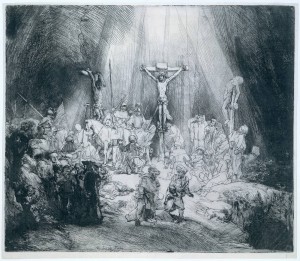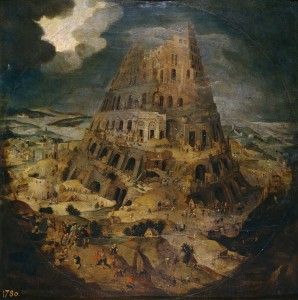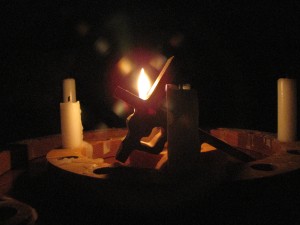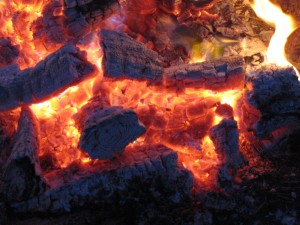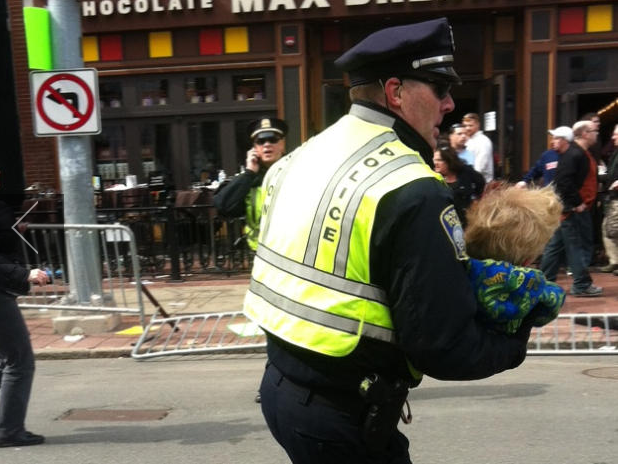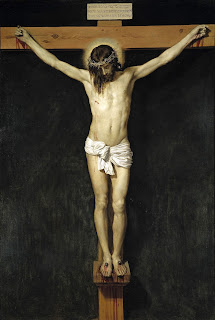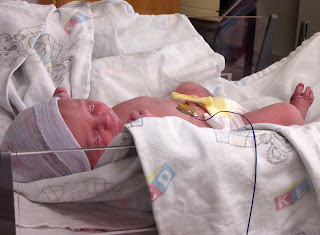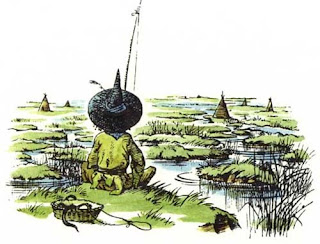Category Archives: hurt
When This World Becomes Just Too Much
ISIS
Ferguson
Tunisia
Greece
Our world is broken. It is fallen.
Cancer
Infertility
Loneliness
Joblessness
Our lives are broken. They can be dark.
That there can be ugliness in this life is not questioned by anyone. No one would argue with the idea that we all go through times of darkness, times of weeping, times of where in the world, where in all of this hurting world are You, God?
If the question then is not will I suffer, then the question must be what will I choose when I suffer.
When I hurt, will I believe that God works for the best in everything or will I wonder whether God is working at all? When I ache, will I believe that God is most present when I am at the end of myself or will I wonder whether God is really in anything at all? When I don’t know how long I can hold on, will I believe in God when I cannot see Him through the dark or will I wonder if the darkness is all that there is?
What do we do when we are sinking, when we are drowning, when we are at the end of ourselves and are pleading for relief?
Paul pleaded with God to remove his thorn. He begged God three times for release. The first two times? Heaven was silent. The third time? God said no.
Jesus asked if there was any other way but the Cross. God’s answer? No.
Why do we think it should be different for us? Why do we think that we should be exempt?
If God is most present and works most powerfully when we are at the end of our own limits, then shouldn’t we want to lean into our suffering rather than try to escape it?
Paul chose to boast of his weakness, to be content with his hardship. He chose to immerse himself in his thorn in order to gain more of Christ.
We don’t have a choice about whether we will hurt.
Our choice is in how we will respond.
Will we spend our time begging for respite? Will we beg God to take it away and then curse Him when He does not?
Or will we receive our suffering as a gift? A gift with a purpose, even though we may never know the purpose. A gift with a promise, a promise of grace and God’s presence.
When God says no, when God says My grace is sufficient for you, instead of arguing with Him about it, instead of fighting Him with all of your strength, ask Him to help you get to the place where you can receive your adversity as a gift from a loving Father.
A gift that brings you more of His grace. A gift that brings you more of Him.
I have learned to kiss the waves that dash me against the Rock of Ages. ~ Charles Spurgeon
Art credits: The Apostle Paul sketch from 1514 A.D.; Christ in the Garden of Gethsemane by Orazio Borgianni; The Three Crosses by Rembrandt
I Cannot
I hate admitting that I cannot do something. I have experienced quite a few tragedies that occurred because I was unable to swallow that thing inside of me that rises up and prevents me from asking for help.
The one notable exception is raising children. I am all about seeking out advice when it comes to my children (which is its own problem because too much advice leads to indecision which invariably leads to paralysis). This is not by any particular virtue of my own, rather it is because I am completely terrified of irreversibly messing up another human being.
Messing up my own life, however, is fine, because whatever the thing is, I can do it.
Even if I cannot.
This causes a definite problem, however, when it comes to my faith. I want to be able to be good enough, to make myself righteous enough, to climb up the ladder and reach God all on my own.
I would have done well in Babel.
I want to do it myself so that I can then take credit. I want to be proud of my own accomplishments. I want, in short, to seek and worship myself.
God, however, is quite clear. We can never rise up to Him, so He, in His infinite mercy, came down to us.
This is folly and this is scandal. It cannot be understood by our own reason and intelligence. This is offensive. It offends our pride to know that there is nothing for us to do.
God is too high and holy and our sin is too deep and depraved for us to be able to reach God.
Our souls become crippled and cramped by trying to rise to the highest height. The end is despair, or a self-righteousness that leaves room neither for love of God nor for love of others. ~ Emil Brunner
It hurts as a crucifixion always does, but I must crucify myself and admit that I cannot reach God. I cannot be good enough and I cannot make myself righteous.
So God descends to us at Christmas and finishes His descent on Good Friday. What is His goal and where does He end His descent? He ends where we belong. In Hell. Our rightful place is separation from God, which is hell, and God descends down to hell.
Jesus experiences our separation from God and despairs of loneliness from God so that we can be free of it. He descends all the way down so that He can lift us out and reconcile us to God. It is the only way.
If the only way to receive God’s Spirit and nevermore to be separate from Him is to admit that I cannot do it, I will crucify my pride every single day and bow my head to the ground in worship and thanksgiving.
I will confess: I cannot.
Art Credits: Construction of the Tower of Babel painting by Pieter Brueghel the Younger; The Three Crosses by Rembrandt
In Which I Hate
I see bombs going off, clouds of fire rising over a town, and I hate the brokenness of this world.
I see women devalued and shamed, children murdered, and I hate the pain of life that can so easily be weighed down with darkness.
I see a sermon topic of parenting after divorce and I hate this sin-disease infecting all hearts which leads to the necessity of such a lesson.
I see my girls’ faces after I have yelled ugliness and I hate the struggle that wars inside of me.
I want this all to end. I want our world and our hearts to be healed and made perfect.
Yet I think about Joseph and about Daniel, stories that tell about ugly, horrible things that turn out to be part of God’s overarching, glorious plan.
If I could, I would convince God that He should come back right now and make everything right again.
Yet deep down, I know that God does have purposes and He does have plans, and I trust what He is about.
Sometimes, though, it is difficult to raise my eyes above the fray. I hate this sin that has broken our hearts and our world with such passion that it is difficult to look away.
My heart is divided between hope and despair.
What do I do?
I could sit and fix my eyes on the ugly squalor of the sin and brokenness and fall quickly into despondency.
Or.
I could stand and fix my eyes on Him who has already begun the healing by His blood.
I could raise my hands in awe of One who could change all with a word and yet allows us, instead, to help in the restoration.
I could ask God’s Spirit to show me ways to hasten the healing of our world.
So I open my arms and hold my family close. I roll up my sleeves and look for ways to work.
Just as these did:
(click on the photograph to read about some who responded to horror with courageous mercy)
Why I Offer My Heart To You
We are all walking wounded.
Yet while we were still sinners, Christ died for us.
For if, while we were God’s enemies, we were reconciled to Him through the death of His Son…
art credit: painting of Christ Crucified by Velazquez
What will you do when God says "no"?
What do you do when you don’t get your way?
My eldest screams with a red hot rage and sobs tears of hurt and disappointment.
As much as I would like to hold my head up high and speak with condescension about the ways of a child, I can’t. Instead, I will bow my head with shame and confess that, even if I don’t do it out loud or in front of people, I have much the same reaction in my deepest places.
I received another “no” from God this week.
It really hurt. Yet another of my well-laid plans was swept away with the dust of a hope.
I do gain deep peace and joy from knowing beyond a doubt that the only reason that God said “no” was because that wasn’t what was best.
And, just as I wrote recently, my heart still grieves.
There is a piece of me, that child that can’t seem to grow up, that wants to shout and rage and stamp its foot and demand a “yes” from God.
The desire, the temptation, is not wrong. As I often tell my eldest, the feeling is not wrong, but what you choose to do can be either wise or foolish.
So what did I choose to do?
This time (I wish that I could say “every time”) I chose what was wise.
With tears, I praised God.
I thanked Him for telling me “no” because I trust that it was best, that it was done out of love.
Then I went to church and worshiped.
If I hurt, am I really trusting?
My eldest has a new fear.
Any time my husband gets into the driver’s seat of our car while I am still out of the car, my eldest is convinced that he is about to leave me. She begins sobbing and yelling, “Daddy, don’t leave Mommy! Daddy, don’t leave Mommy!”.
The usual response is, “Sweetheart, have I ever left Mommy?!”
Apparently, that has nothing to do with anything.
I sometimes get frustrated with the apparent lack of trust that my daughter has in both of her parents, regardless of how many times we have proven ourselves to her.
“Why won’t you trust me?” I ask her. “Have I ever (you fill in the blank!) before?”
When I stop to think about it, though, I completely understand. So often I decide that this is the time that God is not going to care for me, no matter how many times before He has proven His goodness and His love.
How many times does He have to prove Himself to me before I will finally trust that He will do what is best for me, even when I can’t see it?
Recently, though, I have been struggling with a different sort of trust issue.
While Kristina struggled for life and in the early days of Mike facing life as a single parent, God helped me to work though how we trust Him in the darkest times.
Now there are different hard times.
I want to publish these words of mine. So far, God says no.
We want another baby to add to the beauty and joy of our family. So far, God says no.
I thought I was trusting Him in these things. After all, if I could trust Him through horrible pain and ugly death, surely I can trust Him in this also.
I trust that if He is saying no to my desires it is because He has something infinitely more beautiful in mind.
Yet it still hurts.
Why does it still hurt if I trust that God is love?
How can my heart feel as though it is breaking if I trust that God is good?
If I hurt when God says no, does that mean that I am not truly trusting?
This. This is what my heart and my head have been struggling with.
Then one night I was praying while nursing my youngest and God brought to my mind the image of Jesus in the Garden, praying so fervently His sweat fell like drops of blood, praying in anguish that He would not have to face what was coming.
And being in anguish, he prayed more earnestly, and his sweat was like drops of blood falling to the ground.
It was as though God was laying a soothing hand on my troubled heart and telling me to look at His Son.
Of all who have ever walked this earth, Jesus trusted God. Jesus trusted that God is good, that God is love, that whatever God chooses is the very best, most beautiful thing.
And yet He still hurt. He still prayed in anguish and cried out to God to save Him.
So perhaps I am still trusting after all. Perhaps it is okay to hurt when God’s plans turn out to be something other than what I desire.
I will try not to doubt myself so much. I will try to allow myself to weep, to cry out to God in pain and disappointment, while still knowing that
He who did not spare His own Son, but gave Him up for us all — how will he not also, along with Him, graciously give us all things?
art credit: Gethsemane by Carl Bloch
What You Should Do Next
What should we do now?
How should we respond?
When life seems to be running rapidly into a dead end
When we feel carved out and emptied by the rivers of this world’s realities
When the weight of our pain threatens to crush
When our hearts are pitted and scarred by pain, anguish, shame
What should we do?
Yes, we continue to obey, to follow the signs.
To what purpose? To what end?
The men who walked in the fire told a king that even if God refused to rescue, they would continue to obey.
The man who lost all but his life declared that even if God took the last thing remaining to him, he would continue to trust.
Why do we obey, why do we trust even when we cannot seem to find the light?
Listen.
Listen to the Word speak.
Listen to what the Word says as He is drawing very near to His own darkness.
“Now my heart is troubled, and what shall I say? ‘Father, save me from this hour’? No, it was for this very reason I came to this hour. Father, glorify your name!”
The Glory of God our Father.
Out of the rocks, His glory bursts forth.
Out of the dead and the dying, His beauty shines out.
All praise to God the Father, God the Son, and God the Holy Spirit.
Father, glorify Your name!
Follow the Signs
May we continue our conversation from last week?
Reality is hard.
Our family has become steeped in pain and loss.
Many others suffer far greater tragedies.
Reconciling the hurt with the heart of God is hard.
It is tempting to add a veneer of softness, to speak in cliches that turn raw, ripped-open pain into a lie.
Sometimes this is even encouraged among those of us who follow Christ.
Yet to do this denies that we are real, that our hearts can be ripped in two, that our pain and loss can suffocate and almost overwhelm us.
To do this denies that Christ is real, that His body and heart were also ripped apart.
My God, my God, why have you forsaken me?
All through the Bible, God seems to not place much importance at all on whether we are free from pain or suffering.
Abel. Abraham. Joseph. Moses. Uriah the prophet. John the Baptist…Jesus’ cousin. All of the apostles…Jesus’ closest friends.
Understanding why Kristina had to die is hard.
I might never know the reason.
God’s purposes are not for me to understand His plans: His plan is for me to understand Who He is…Faith is this unwavering trust in the heart of God in the hurt of here. (Ann Voskamp, A Holy Experience)
Can I trust in the heart of God?
“Once and for all,” said the prisoner, “I adjure you to set me free. By all fears and all loves, by the bright skies of Overland, by the great Lion, by Aslan himself, I charge you –”
“Oh!” said the three travelers as though they had been hurt. “It’s the sign,” said Puddleglum. “It was the words of the sign,” said Scrubb more cautiously. “Oh, what are we to do?” said Jill.
It was a dreadful question. What had been the use of promising one another that they would not on any account set the Knight free, if they were now to do so the first time he happened to call upon a name they really cared about? On the other hand, what had been the use of learning the signs if they weren’t going to obey them? Yet could Aslan have really meant them to unbind anyone – even a lunatic – who asked it in his name? … They had muffed three already; they daren’t muff the fourth.
“Oh, if only we knew!” said Jill.
“I think we do know,” said Puddleglum.
“Do you mean you think everything will come right if we do untie him?” said Scrubb.
“I don’t know about that,” said Puddleglum. “You see, Aslan didn’t tell (Jill) what would happen. He only told her what to do. That fellow will be the death of us once he’s up, I shouldn’t wonder. But that doesn’t let us off following the sign.”
We aren’t guaranteed that anything here on earth will turn out okay. I wish we did have that promise.
Instead, if we have nothing else (and we do have so much else!), if we can turn to and trust nothing else, we have the cross.
After his wife of only four years had died of cancer, C. S. Lewis said
If only I could bear it, or the worst of it, or any of it, instead of her…But is it ever allowed? It was allowed to One, we are told, and I find I can now believe again, that He has done vicariously whatever can be so done. He replies to our babble, “You cannot and you dare not. I could and dared.”
And so I find that perhaps, after all, it does not matter why. It does not matter from whence came the hard thing.
If God ever had to prove anything, at the cross He proved His love, His promise to work for the best of all He created.
It is not a bad thing to seek for the why’s and how’s and from where’s. God is able to handle our questions, our fears.
Yet if we never get any answers, if we never know the reasons, if we never understand, we who have chosen to follow Christ, who have allowed Jesus to be the Lord of our lives, we who have embraced His sacrifice of love…
We aren’t let off following the signs.
Art Credits: Photograph of Cross wooden statue by Asta Rastauskiene; Marsh-wiggle picture (I was not able to find the original); Rembrandt’s The Three Crosses
This is Hard.
Grief is hard.
While the rest of us can return to our lives and, for at least a few hours, forget, my brother is faced with his new reality every moment of every day.
The loss of his beloved, now a single daddy…
Reality is hard.
I want to know God and part of knowing Him must involve reconciling what I see around me to what I know of Him through His Words.
The seeking results in ideas and wonderings that reverberate through my heart.
You have walked with me through many of my searchings in the darkness. Will you join me for a few more?
Does God send suffering? Does He send pain?
Some would recoil at the idea.
But why? We see pain result in good all the time in our world. Go to any hospital and look around.
I talk with my youngest brother about this.
He of the scientific bent points out that many things that sometimes have “tragic” results are very important to the existence of the earth, even to our own existence: without wildfires, ecosystems would collapse; without seismic and volcanic activity, our earth could not refresh itself; hurricanes aid island ecosytems; the gene mutations that sometimes produce cancer prevent us from all being clones.
The Bible seems to suggest that God does, at least sometimes, send bad things:
We do not want you to be uninformed, brothers, about the hardships we suffered in the province of Asia. We were under great pressure, far beyond our ability to endure, so that we despaired even of life…But this happened that we might not rely on ourselves but on God, who raises the dead. ~ II Corinthians 1
As he went along, he saw a man blind from birth. His disciples asked him, “Rabbi, who sinned, this man or his parents, that he was born blind?” “Neither this man nor his parents sinned,” said Jesus, “but this happened so that the work of God might be displayed in his life.” ~ John 9
Perhaps, though, whether or not He sends them doesn’t matter.
Bad things happen.
If God doesn’t send them, He certainly has the power to stop them. Yet He chooses to allow them to happen.
Well, take your choice. The tortures occur. If they are unnecessary, then there is no God or a bad one. If there is a good God, then these tortures are necessary. For no even moderately good Being could possibly inflict or permit them if they weren’t. Either way, we’re for it. (C.S. Lewis, A Grief Observed)
Either way we are left trying to reconcile these things with the God that we know to be good.
We are left trying to reconcile the hurt with His heart.
There are tears everywhere and God catches them, puts them into His bottle.
God is always good and we are always loved. Loved enough to be shaped into goodness of Christ Himself. (Ann Voskamp, A Holy Experience)
This reconciliation is hard.
How have you done this? How have you reconciled these hard things with the character of our God?
Will you join me next week as I search through these ideas even more?









